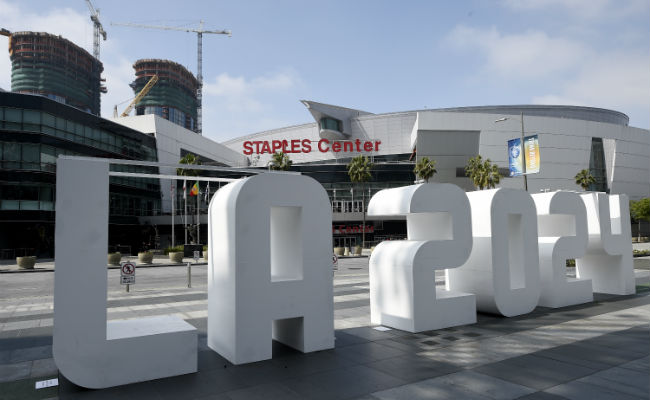
The Summer Olympics are coming back to Los Angeles, just maybe not as soon as organizers originally hoped. The International Olympic Committee announced on Wednesday that LA will host either the 2024 or 2028 Summer Olympic Games. Los Angeles and Paris were officially awarded hosting duties for Summer Olympics on Wednesday, with the decision over which city gets which game to come later.
The announcement came after an interesting period for the IOC. Namely, that the number of municipalities worldwide that actually wanted to host the Olympics was pretty low. A number of cities dropped out or had local governments fail to approve funding for the games, including the United States’ initial bid, Boston.
The reasons for not hosting the Olympics are pretty clear: they cost a fortune, and often that cost diverts funds from projects that can actually help the poor or improve education or other government works inside these major metropolitan areas. The Games are seen as an opportunity for global exposure and a chance to show off, but the cost of obtaining that stage often leaves cities saddled with financial ruin once the IOC packs up and moves on to another city two years later.
The 2004 Olympics in Athens, Greece, is often cited as the most disastrous Olympic host city story, but last summer’s Olympics will likely rival that in terms of mayhem. The Rio Olympics were a success for the IOC in 2016 but certainly not for Brazil, which is saddled with debt, unused venues, and a crippled economy that did not nearly benefit as much from hosting the events as initially advertised. Everyone knew trouble was coming, but the games went off because it would be more embarrassing if they didn’t happen at all. But now the bills are coming due, the Olympic village is empty and the venues used for about a fortnight sit silent.
This is the formula the Olympics have followed for decades now. Just this week the IOC is unwilling to help Rio pay part of the massive debt they took on to host the Games, a clear sign that if things go wrong for Los Angeles it will be up to the government there to figure things out for themselves.
The lone point of optimism here — other than unrelenting patriotism — is that Los Angeles has hosted the games and they were largely considered a success. If they can follow a similar model and have long-term plans in place for venue reuse and adaptive reuse of athlete dormitories and so on, this could be a positive for the city’s residents in the long term.
Judging the recent history of the Games and all the ruin porn slideshows available online, it’s a long shot that we’re speaking positively about this bid come 2030. If we even make it there.






